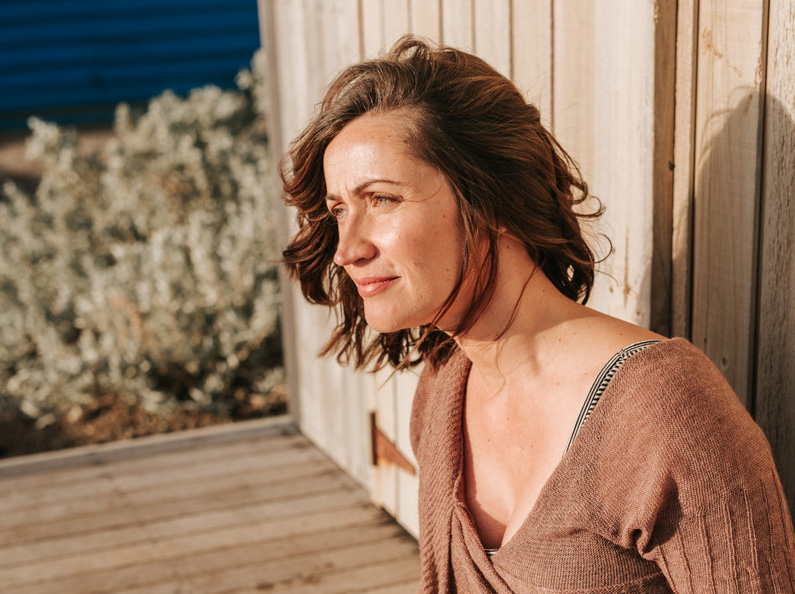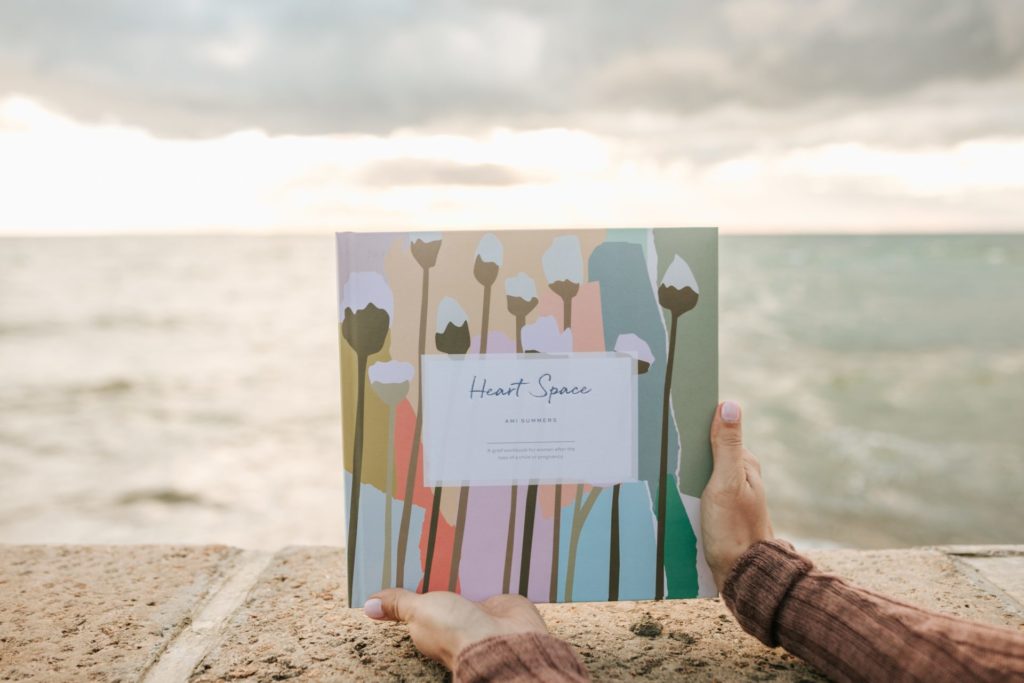In 2013, Arla Summers McCarthy was stillborn at 38 weeks. Her mother, Ami Summers, having experienced an uneventful pregnancy, was shocked and devastated.
Ami shares, “We were with her for about 12 hours afterward. The hospital encourages you to be in the room with your baby, and we naturally got to the stage that we were ready to say goodbye and leave. It was a hard moment, because we were saying goodbye for forever.”
Six months later, Ami and her husband Dave were ready to try to get pregnant again. They were both ecstatic when Ami conceived, yet tragically enough, Ami miscarried at 7 weeks.
Two months later, Ami and Dave lost their third pregnancy, this time an ectopic pregnancy that caused Ami to lose her right fallopian tube.
“That was really the experience that knocked me for six out of all three,” Ami recalls. “The ectopic [pregnancy] felt like the last straw. It felt really unfair to not only go through the stress of emergency surgery, and the recovery of that, but to have our fertility technically halved when we’d always fallen pregnant really easily. It was tough.”
Although doctors believed that conception might be difficult for Ami and Dave going forward, Ami became pregnant six months later. Naturally, she and Dave were incredibly anxious throughout her fourth pregnancy.
This time, Ami went 34 weeks before experiencing a catastrophic spontaneous abdominal haemorrhage due to endometriosis scarring. She was given an emergency c-section before being put into a coma for the next 24 hours.
Happily, when she woke up, she was reunited with her newborn son, Indy, and both stayed in ICU for some time.

Ami tackles her grief
Throughout Ami’s losses, she struggled with her grief. An experienced coach and leadership consultant, it was especially important to her to have tools and exercises she could use on her own to work through her grief.
“I was looking for a really practical resource that I could go to, to help me through this experience,” Amy explains. “And, at the time, six years ago, there was nothing I could find to help me with the emotions and the feelings and the experiences that I was experiencing.”
“Everyone processes their grief differently, but for me, it was really important to have something that I could work through at home, between counselling sessions and between people being at home to support us… I looked for that resource and it didn’t exist. So, I vowed to write it myself,” she explains.
The birth of Heart Space
The resulting book Ami created, Heart Space, is a self-directed, therapeutically reviewed coaching book that aims to help families through all phases of loss.
Ami explains, “It was important that the book was a safe space therapeutically. There are trigger warnings throughout the book and grounding exercises to ensure the reader has the tools to process their emotions and thoughts safely.”
The contents of the book has been reviewed by a therapist to ensure the processes and exercises are clinically constructive and don’t do further damage.
Designed to be an all-in-one workbook, journal, memory book, and coaching guide, Heart Space is collectively shaped by the stories of mothers, fathers, and other family members, who have been directly affected by the loss of a child or pregnancy.
“The beauty of the resource is that it’s designed to be able to be picked up at any stage of the grieving process and for any kind of loss,” Ami explains.
“We’re finding that it’s useful and applicable for the loss of children that may be older and even adult children… to really early miscarriage.”
Although the book was designed specifically for women, it can be used by any member of the family experiencing loss.

How Heart Space helps
Heart Space was created with the understanding that grief affects people differently.
“As we know now, grief is a very complex beast that feels and looks very different for everybody. The grief model and stages that we all understood to be true… has been proven to be different from the lived experience of grief,” Ami explains.
“We know more now about how variable and subjective the grieving experience can be for each individual, so it was important to us to make sure we addressed that in the book.”
Isolation was another topic she wanted to make sure the book covered.
“Sometimes the loss of a pregnancy can alienate or isolate you from friends that maybe have children, or it can isolate you from a work setting, because it’s still a taboo subject and no one wants to talk about it.”
“I remember going to work and people not mentioning it. It was very strange, because we were really open about our experience, and we wanted to talk about our daughter.
“Some people still have that traditional western view that grief or miscarriage or loss of a baby should not be talked about,” Ami adds.
“In putting together the book, it was really important to us that the reader feels like they aren’t alone, that there were stories and exercises in Heart Space that could connect them with other women.
“Hopefully the reader feels like their experience is not unusual and how they feel is normal. And hopefully, it provides a space where they can process the difficult, deeper emotions and thoughts, rather than feeling like they have to hang onto them and keep them within their bodies, which has a flow on effect on wellbeing.”
Another important feature of the book is that it can be used however the reader wants and needs. “The book is written in a way that you can pick it up at any point, with or without sequence,” Ami says.
“You could open it up at page 200 and find something useful in there, or you can work through it from start to finish.
“It is designed to be picked up any time and not to have pressure on the reader to work through their grief in a certain process or a certain order.”
How doctors can help patients who’ve lost a pregnancy or child
When we asked if she has any advice for doctors treating patients who’ve lost a pregnancy or child, above all, Ami recommends sensitivity.
“Some of the best doctors we dealt with were the ones that were just really sensitive to the magnitude of what losing a child or even a pregnancy feels like. These doctors talked about it openly with real empathy, they checked in when they didn’t have to, and didn’t just shower us with platitudes of ‘I’m so sorry for your loss’. That’s the most inauthentic thing you can say,” Ami says.
She also thinks it is important for doctors to understand that “even though a woman might present quite matter-of-fact, or look like she’s dealing with loss okay, a woman is a master of getting on with things, especially when it comes to putting her family first… it can be months down the track that it really impacts.”
Lastly, Ami wants doctors to know that a woman experiencing a miscarriage should be treated like any other adult who is grieving a loss.
“It’s the same kind of experience…even more intense in some ways, because it happened in her body, so there’s all sorts of complex emotions that come with that responsibility too.
“It’s not just grieving what could have been, but also there was a little person that you were growing inside your body that you were connected to 24 hours a day. You also grieve things as a woman, around being able to bear children, keep your children safe, and nourish a child.
“It’s a complex grief. And one that is probably not totally understood yet,” she says.

How to order Heart Space
Heart Space is a book that has been well received by GPs, obstetricians and therapists from all over the world, and is already stocked in a number of clinics, maternity wards and therapy rooms. The book can be purchased singly or in bulk wholesale orders for practitioners. To purchase a copy or find out more, visit www.heartspacebook.com.



